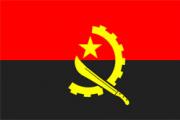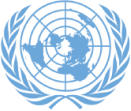Security Council
Debate on "Strenghtening the United Nations-African Union
Partnership in Peace and Security"
18 November 2016
Statement
Mr. President,
I start by commending the Senegalese Presidency of the Security Council for convening this Debate on strengthening the partnership between the United Nations and the African Union on peace and security.
We thank the briefers Assistant Secretary-General El Gassim Wane, Special Representative Haile Menkerios, AU Permanent Observer Tete Antonio, AU High Representative for the Peace Fund, Donald Kaberuka for their presentations which will steer our discussion.
Mr President,
The contemporary and evolving challenges posed by violent conflict, humanitarian crisis, extremism, terrorism, war crimes and crimes against humanity call for a more coordinated response and complementary action from all stakeholders in addressing issues related to peace and security at the international and regional levels.
In this regard, the cooperation between the African Union and the United Nations, based on a shared vision, goals and comparative advantages, plays a crucial role in tackling the numerous conflicts in the African continent.
The Addis Ababa Declaration of 2006, which established a ten year capacity-building programme for the African Union, provided the basis for cooperation between the two organizations, and the establishment of a framework and institutions, inter alia the United Nations Office in the African Union (UNOAU), the annual Joint Consultative meetings, the A3 coordination Group in the Security Council, the Joint Framework between the UNOAU and the Peace and Security Department of the African Union, and the Joint Task Force on Peace and Security, while important resolutions have been adopted, in particular Resolutions 2033 and 2167 which seek to strengthen this relationship and develop a more effective partnership. These were positive developments that we are called to refine with the improvement of the mechanisms established.
Nevertheless, bearing in mind the need for evolving this relationship from the cooperation level to a strategic partnership, in July 2015, the Assembly of the African Union adopted a decision to establish the 2017-2028 Framework for a renewed partnership on Africa's Integration and Development Agenda (PAIDA) based, among other provisions, on the guiding principle of African ownership and leadership.
PAIDA is built upon important strategic policy decisions of the African Union, namely Agenda 2063, aimed at creating the conditions for the sustainable development of the African Continent, and Vision 2020 as the AU framework to put an end to all conflicts in the continent by 2020.
In its 50th Anniversary Solemn Declaration, the AU proclaimed the need for a stronger commitment by the African States in addressing conflicts in the continent and review their policies on peace and security.
The African Member States have expressed their willingness to engage in peace-keeping missions with robust mandates aimed at deterring violence and, if needed, to enforce peace, an endeavor to beachieved in close coordination and complementarity with the United Nations and the Security Council, which has the primary responsibility for the maintenance of international peace and security.
In 2015 the African Union adopted the African Peace and Security Architecture Roadmap for 2016-2020, as a strategic blueprint, putting particular emphasis on deliveries by all stakeholders involved in the Peace and Security Architecture, including partners and external actors.
The 2016-2020 Roadmap aims at covering the different phases of the conflict cycle through five strategic priorities: conflict prevention; conflict management; post- conflict reconstruction and peace building; strategic security issues, coordination and partnerships.
The central question remains: how can the UN Security Council support the successful implementation of these strategic priorities?
The United Nations went through a review of the peace keeping operations, and The High-level Independent Pannel presented a comprehensive report, for which the African Union, was extensively consulted, and given the opportunity to lay out its common position focused on priorities, on the management of crisis by regional institutions; the recognition of the Security Council’s primacy to authorize enforcement actions; the need for permanent consultation and exchange of information related to ongoing crisis or conflicts; the need for better coordination and the strengthening of complementarities.
In the search for African solutions to the conflicts affecting the continent, considering the unprecedented threats faced by some African countries and the delays in the operationalization of the Africa Standby Force, initially due for 2008, some AU Member States launched discussions on the establishment of the African Capacity for Immediate Response, to provide the African countries with means guaranteeing their ownership in tackling conflict situations in the continent and capabilities for immediate response to crisis.
Mr. President,
In concluding, these strategic operational decisions and experiences led by the African Union there are some common denominators: first, the AU and the UN commitment to strengthen their strategic partnership on issues related to peace and security; second, the need to explore options to ensure predictable, reliable and sustainable funding for the peace support operations of the African Union.
Finally, Mr. President, Angola commends the AU Peace Fund report entitled "Securing predictable and sustainable financing for peace in Africa". We reiterate our support to the resolution we have just adopted and look forward for options on the operationalization of the commitments by the African Union and the outcomes of the discussion on this issue by the 5th Committee of the General Assembly.
Thank you very much.


